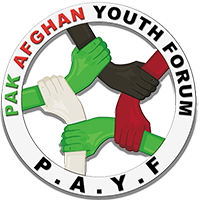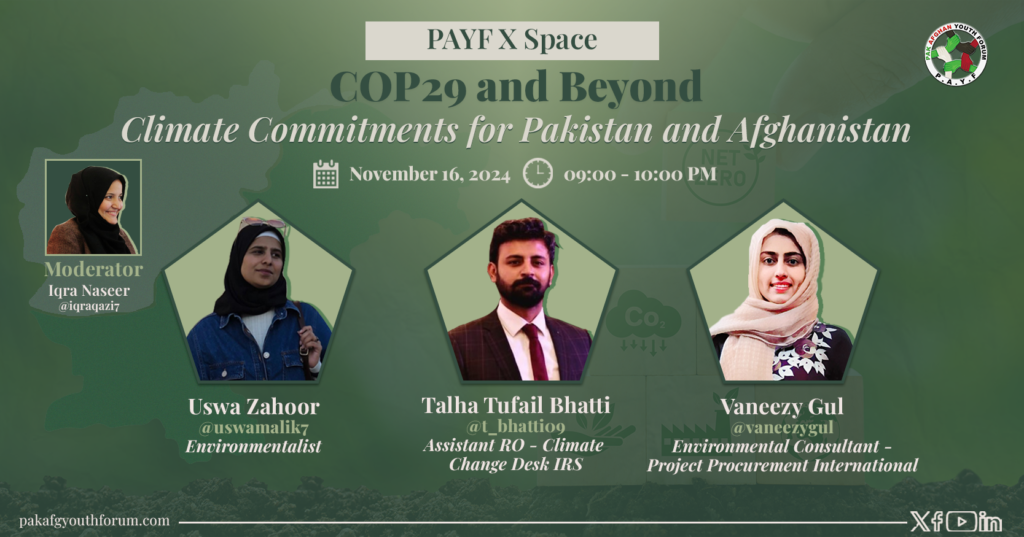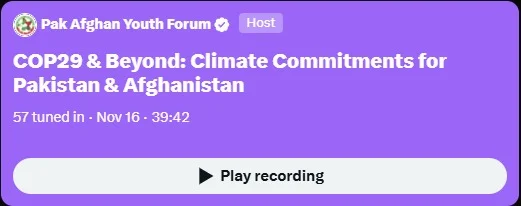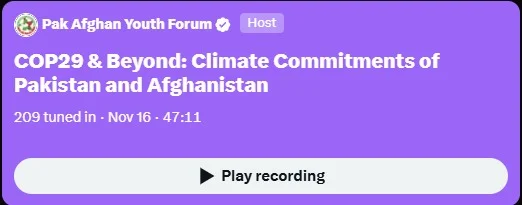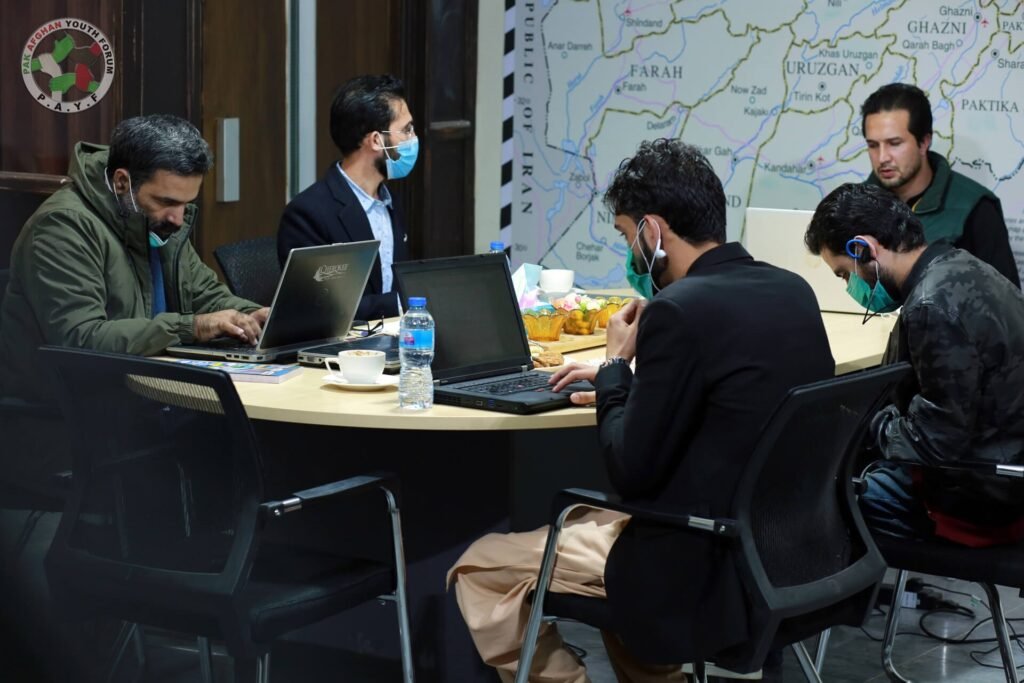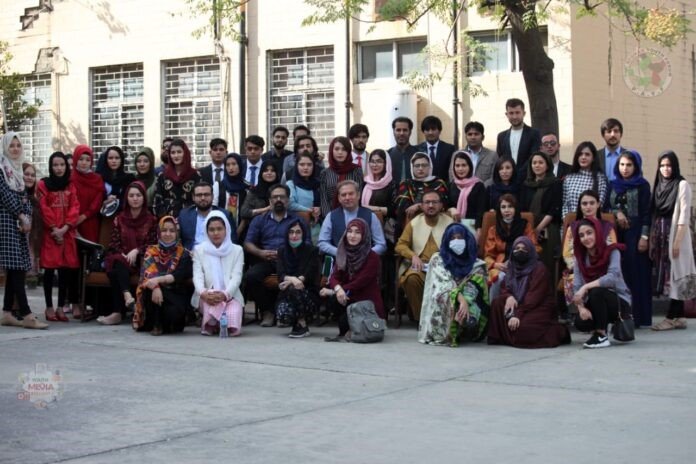On 16 November 2024, the Pak-Afghan Youth Forum hosted a Twitter Space session, moderated by Iqra Naseer, to explore the implications of COP29 for Pakistan and Afghanistan. The session highlighted the climate vulnerabilities of both nations, the potential for regional collaboration, and the critical role of platforms like COP29 in addressing these challenges.
The event featured three distinguished speakers:
1. Talha Tufail Bhatti, Assistant Research Assistant at the Climate Desk, Institute of Regional Studies Islamabad, provided insights from Afghanistan’s perspective.
2. Uswa Zahoor, Environmentalist, Ph.D. candidate at Ghazi University Istanbul, and educationist, discussed Pakistan’s challenges and strategies.
3. Vaneezy Gul, Environmental Consultant at Project Procurement International and former delegate at the Local Conference of Youth, focused on actionable initiatives and the private sector’s role in climate action.
Also See: Iqbal’s Vision of Pakistan and Afghanistan
Key Highlights from the Speakers
Vaneezy Gul
- Vaneezy identified key outcomes of COP29 that are relevant to both Pakistan and Afghanistan, including discussions on adaptation, mitigation, and carbon markets. She emphasized the potential of carbon credits and equitable climate finance to address shared vulnerabilities.
- On collaboration, she proposed feasible initiatives such as cross-border afforestation projects, renewable energy partnerships, and joint agricultural programs to combat extreme weather conditions.
- Vaneezy suggested climate-smart agriculture, drought-resistant crops, and improved irrigation systems as critical measures for both nations to cope with climate-induced stresses on agriculture.
Talha Tufail Bhatti
- Talha praised Afghanistan’s participation in COP29, emphasizing its importance as a platform to raise awareness about the nation’s climate challenges and advocate for international support.
- He identified water scarcity as a critical issue for Afghanistan and Pakistan. Talha advocated for collaborative water management initiatives, such as shared reservoirs and joint disaster response mechanisms, to address this pressing challenge.
- Talha highlighted that COP29 has yet to meet expectations, citing the example of Pakistan not receiving the pledged funds for the 2022 floods. This underscores the need for greater accountability and delivery on commitments by developed nations.
Uswa Zahoor
- Uswa explained that Pakistan reiterated its position as one of the most climate-vulnerable nations, despite contributing less than 1% of global emissions. She highlighted the country’s call for equitable climate finance, particularly in adaptation efforts and the Loss and Damage Fund.
- As an educationist, Uswa emphasized the importance of integrating climate awareness into Pakistan’s education system. She discussed how empowering youth through climate-focused curriculums and community initiatives could drive grassroots-level change and build long-term resilience.
- She highlighted the role of young people in fostering innovative solutions and creating awareness, emphasizing that inclusive education systems could play a transformative role in addressing climate challenges.
Interactive Q&A Session
The session concluded with a lively Q&A, where participants engaged with the speakers on topics ranging from practical collaboration initiatives between Pakistan and Afghanistan to the role of local governments in implementing climate policies. This interaction underscored the importance of youth engagement and inclusive policymaking in addressing regional climate challenges.
Conclusion
The session highlighted several critical points:
1. Collaboration is Essential: Regional initiatives, such as shared water management and climate-smart agriculture, are vital for building resilience in both Pakistan and Afghanistan.
2. COP29’s Missed Opportunities: While COP29 raised important issues, it has yet to deliver on financial pledges, particularly for Pakistan’s flood recovery efforts.
3. Youth and Education: Empowering youth through education and awareness is crucial for sustainable climate action at the grassroots level.
4. Actionable Steps: Both nations should focus on feasible projects like afforestation, renewable energy, and resilient agriculture to address shared challenges effectively.
The session reaffirmed the urgency of collective action and the importance of platforms like COP29 in amplifying the voices of vulnerable nations. The Pak-Afghan Youth Forum remains committed to fostering dialogue and collaboration on critical climate issues.
Find the full session recordings here:
